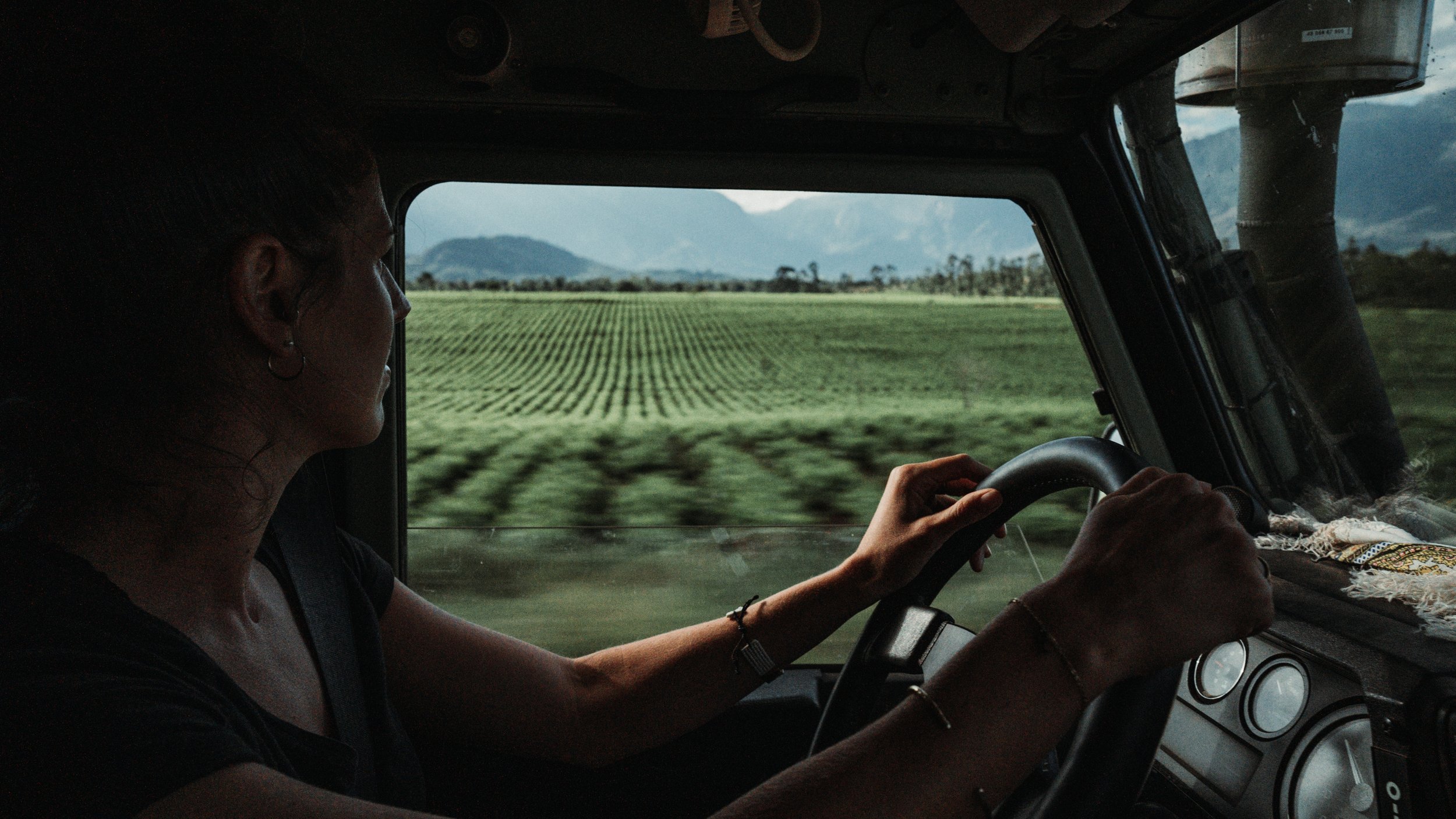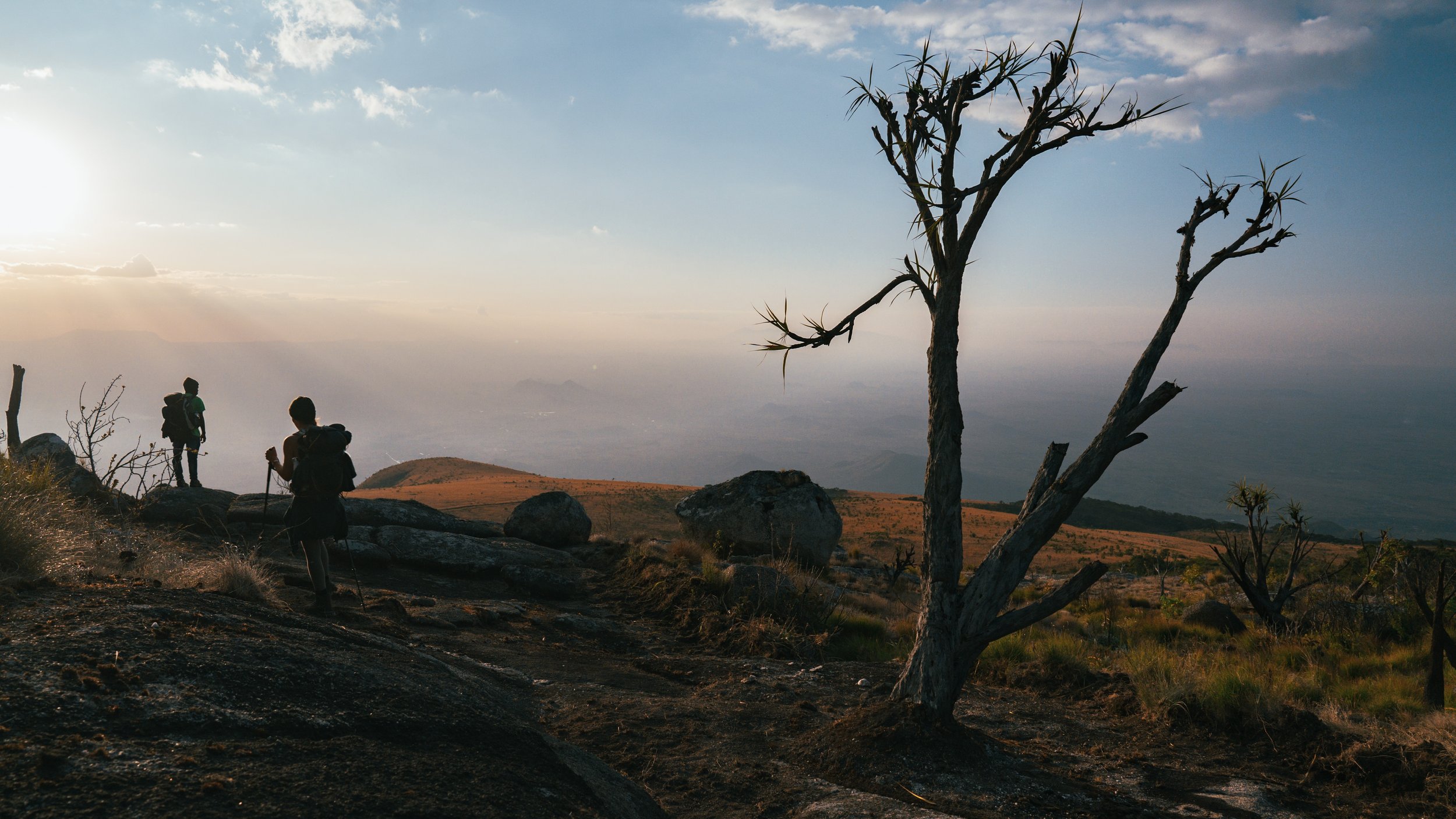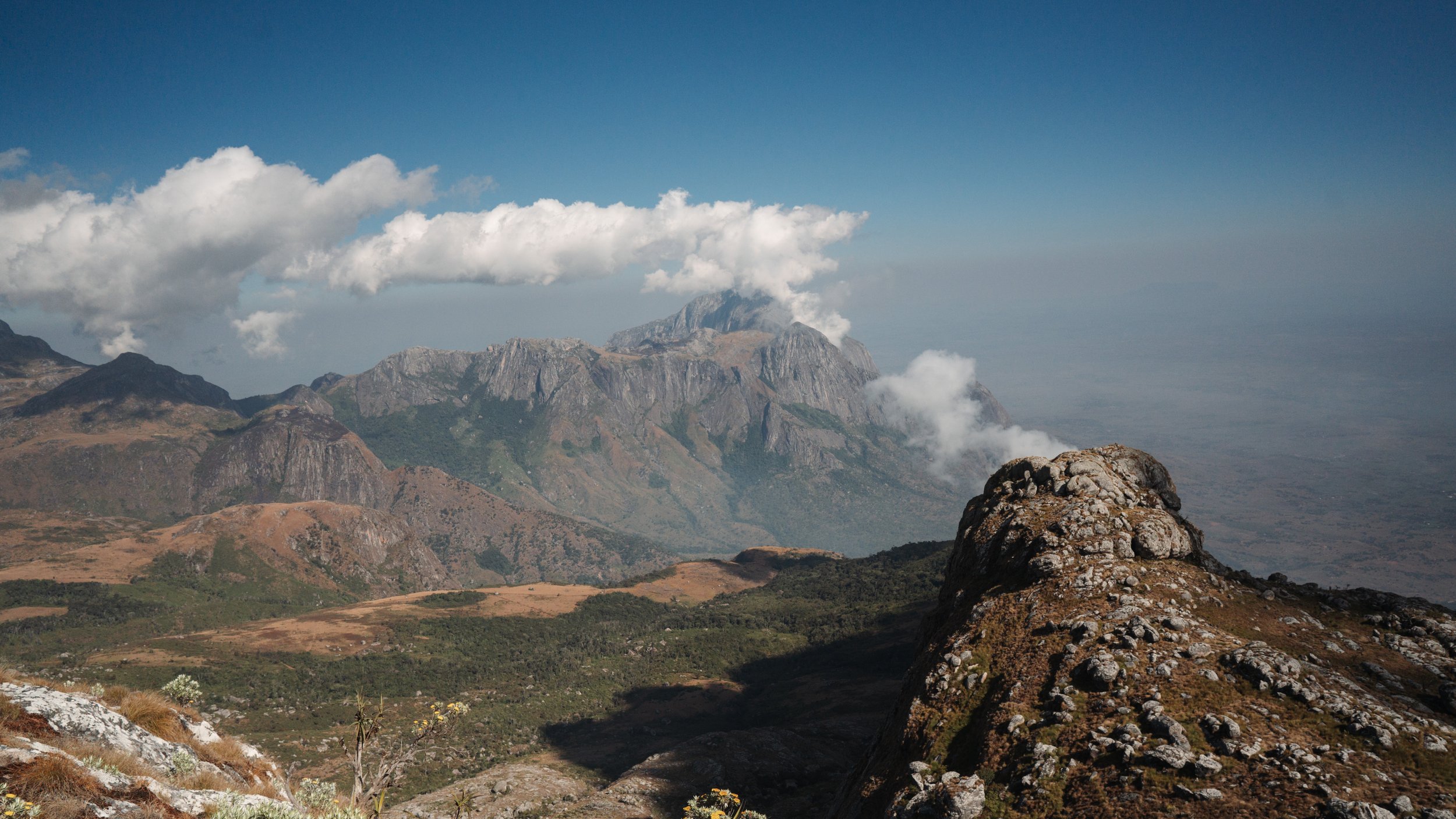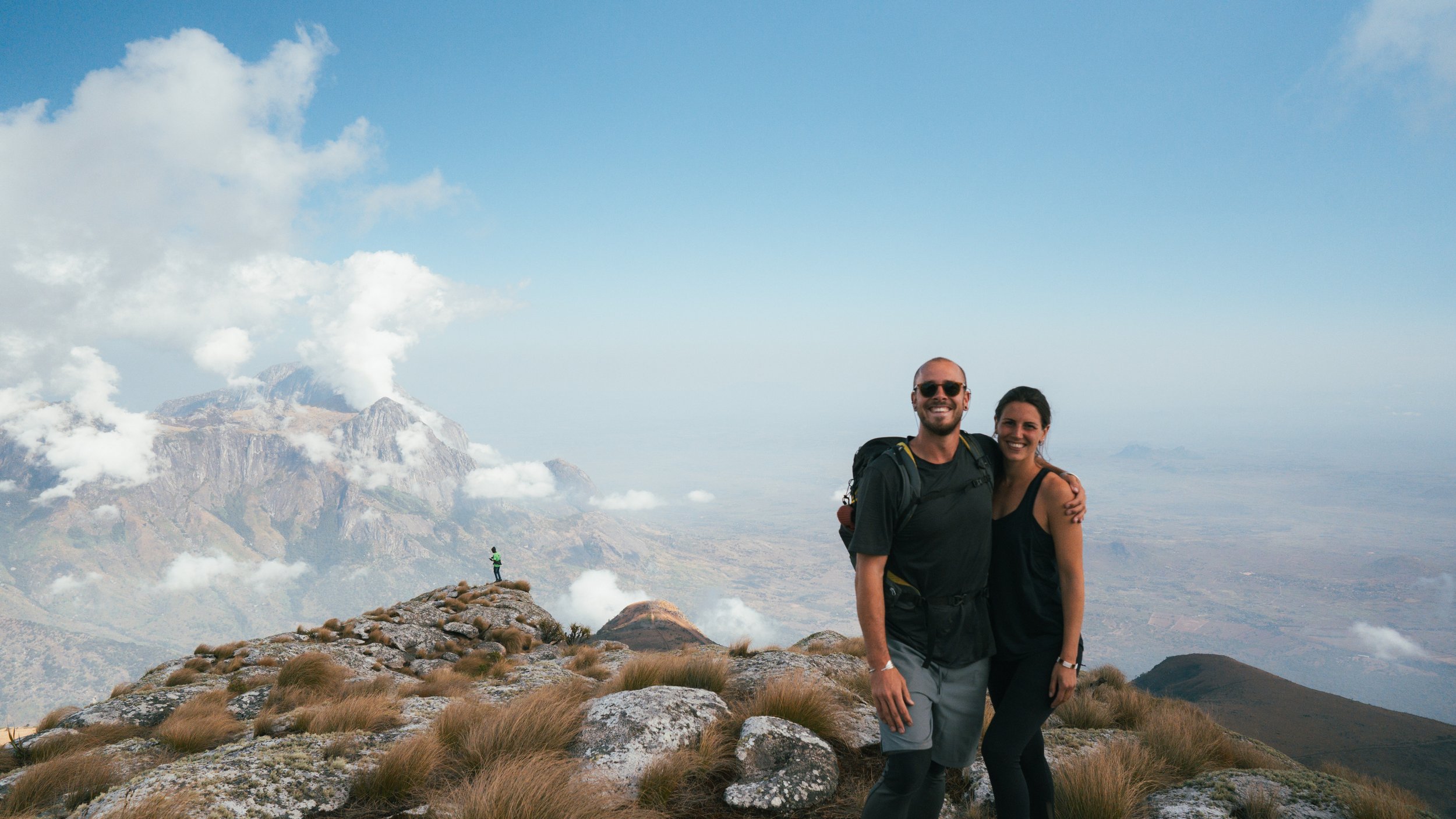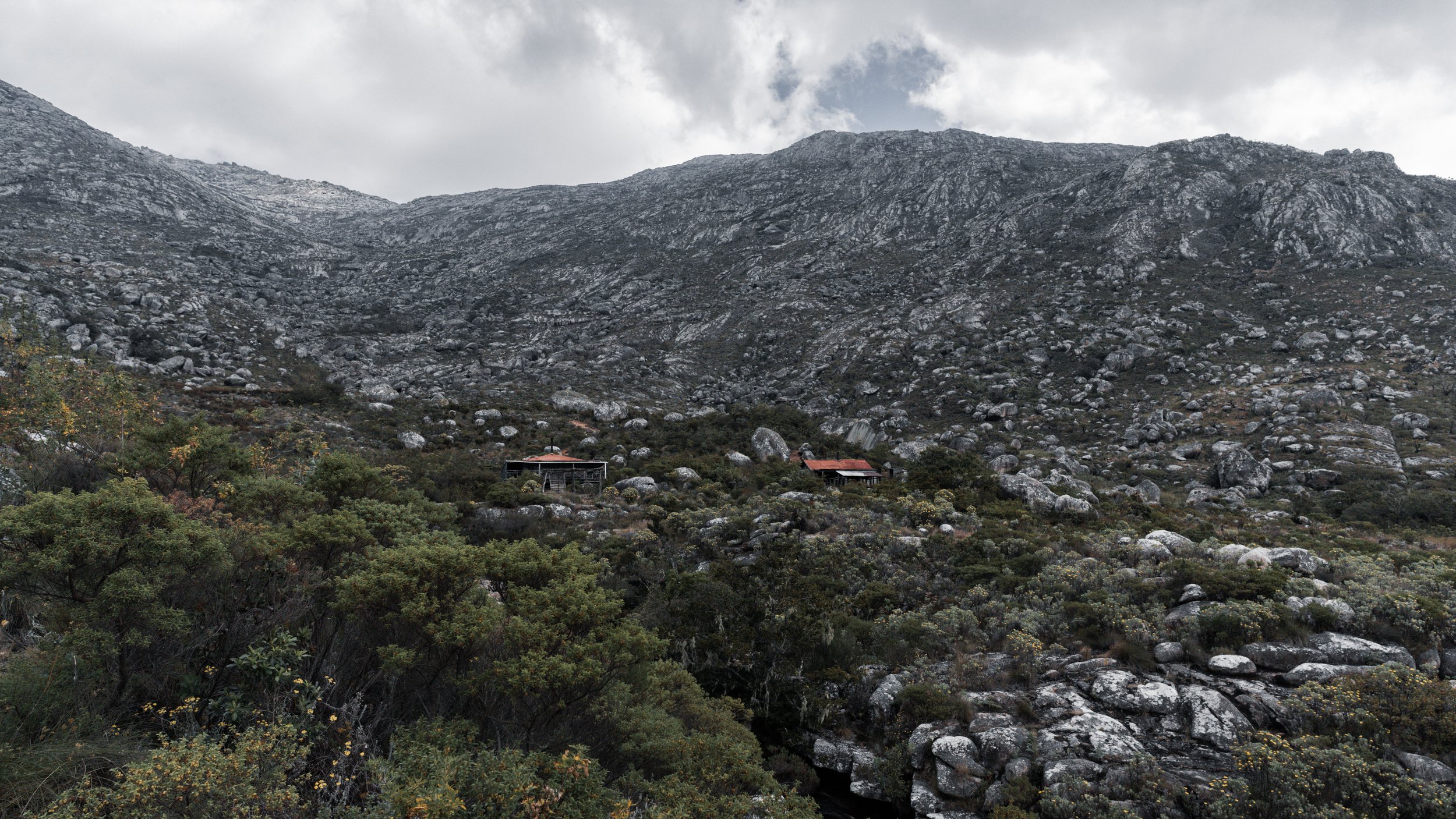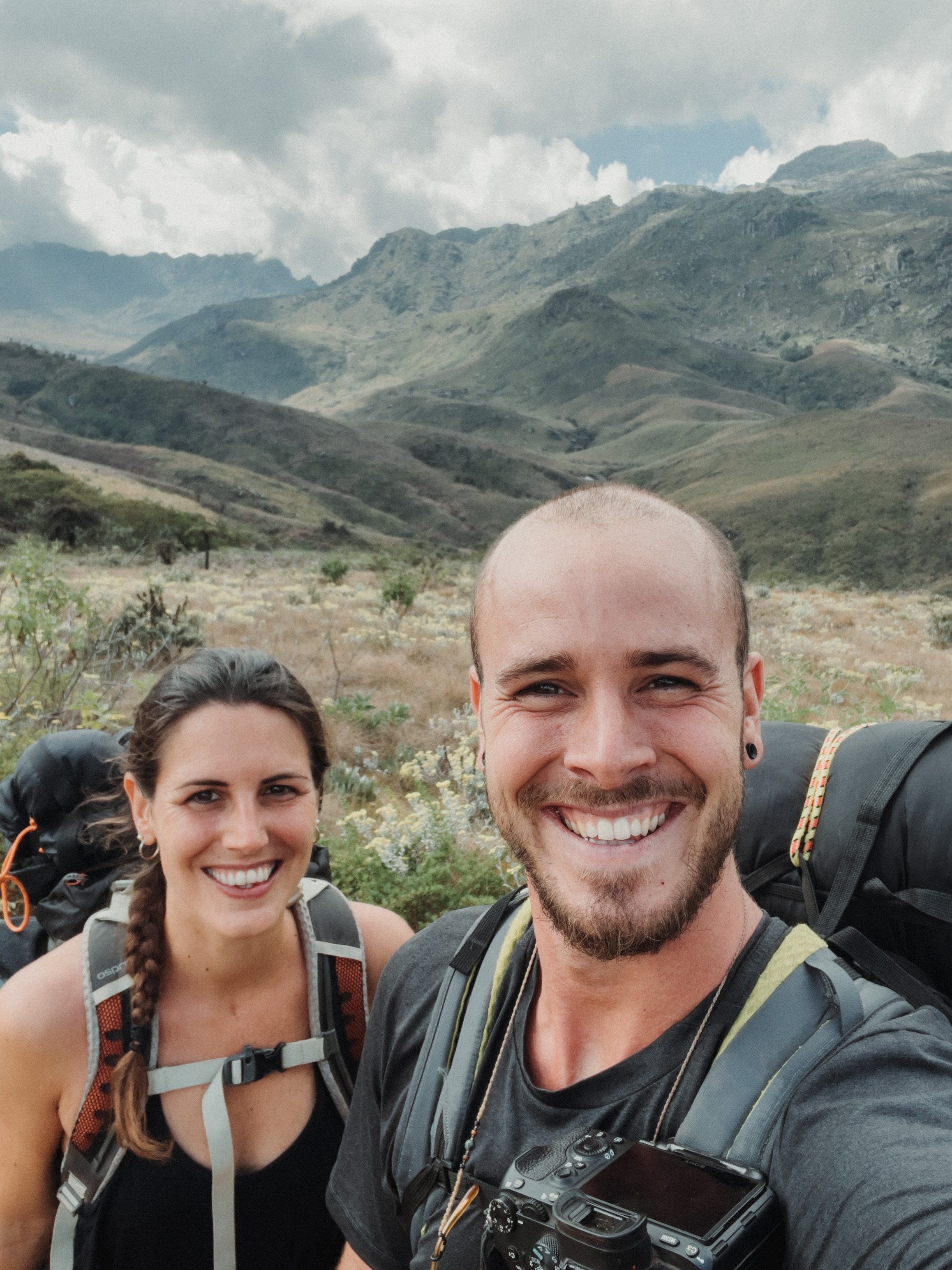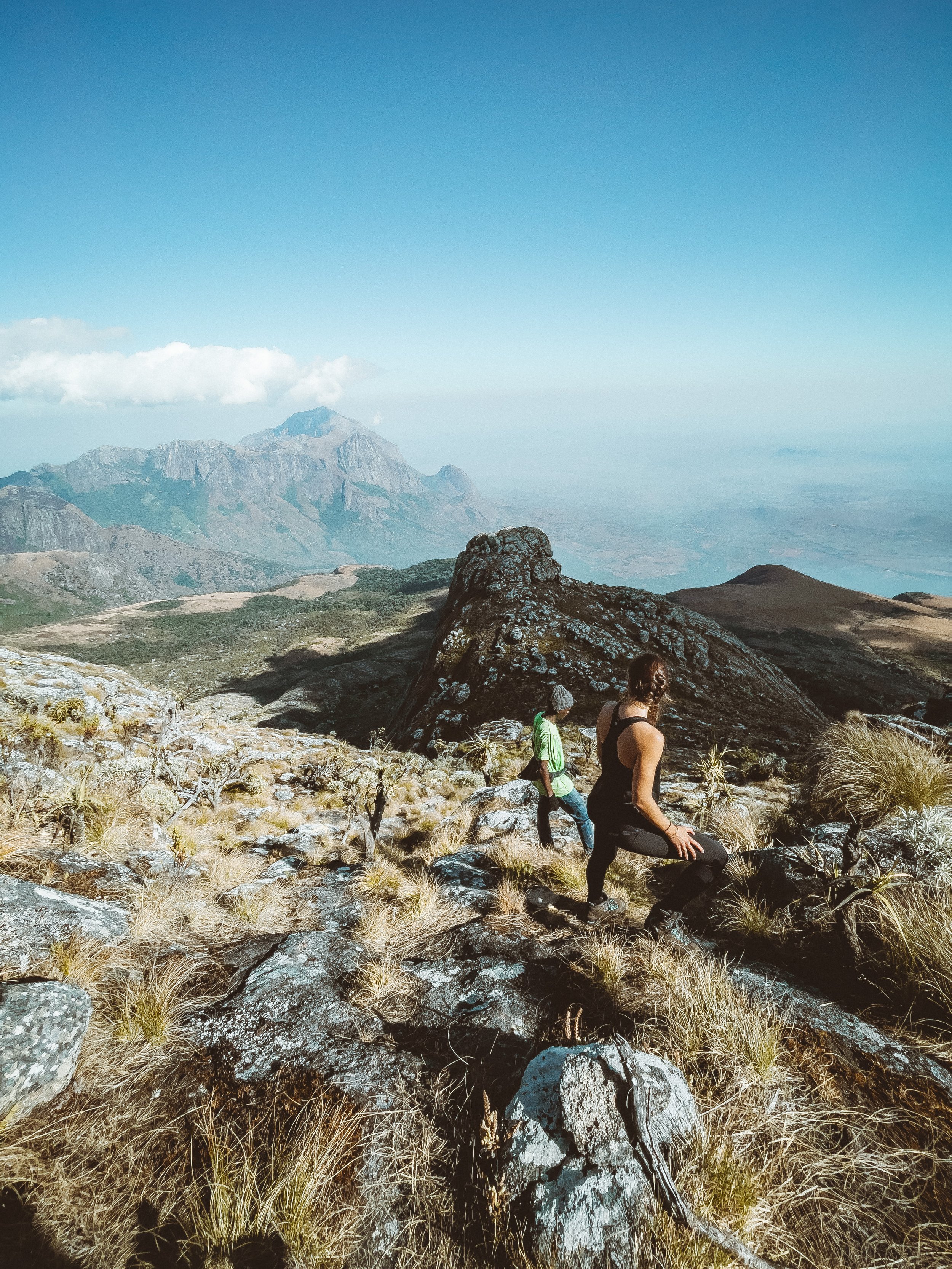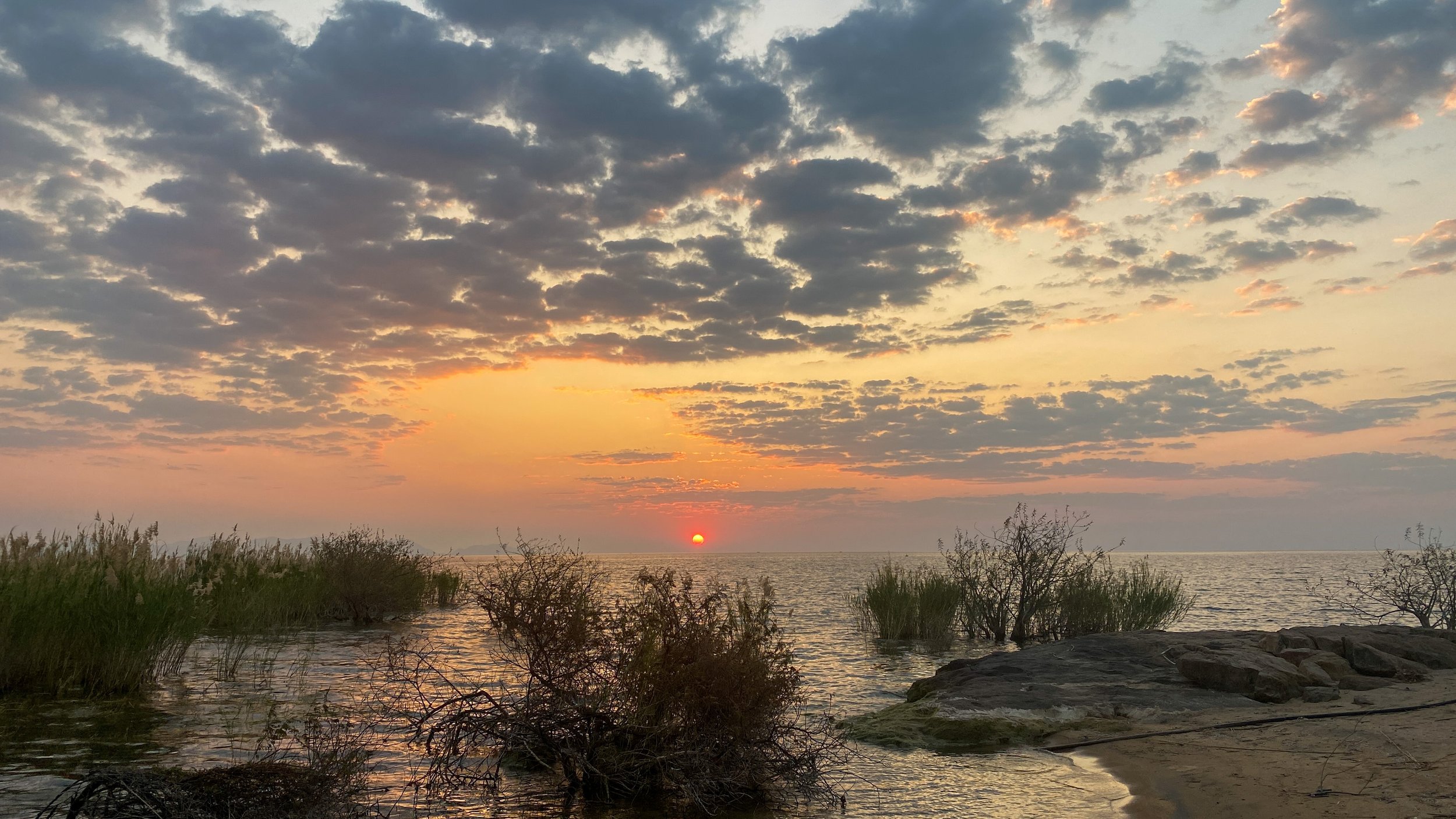We soaked up the sun at Lake Malawi as much as possible because our next destination was high up in the mountains of Malawi, and we didn’t quite know what temperatures to expect since it was still winter. Our first stop was in Zomba, a town from where it was easy to reach the famous Zomba plateau. We stayed at Casa Rossa, a cute little lodge run by an Italian-Russian couple. They came to Malawi many years ago and decided to stay in Zomba due to the cooler weather, which they liked. Down at the lake, the temperatures get unbearable in summer. They found this charming old colonial house and turned it into a beautiful restaurant and lodge, including one little camping spot. The pizza and homemade pasta were beyond anything we had tasted since we had been in Africa - we were in food heaven. We intended to go on a little hike around the plateau, and Silvia, the owner, recommended an excellent guide. Jonas took us on a nice walk around the plateau and explained much about their issue with deforestation. Unfortunately, the locals cut many cedar trees because the wood is perfect for making furniture and burning. Therefore, the local cedar almost went extinct. Jonas is very engaged in saving the forest and educating the locals about the consequences of deforestation. We also learned a lot from him and enjoyed the hike very much. Afterward, we invited Jonas for some delicious pizza at Casa Rossa - he had never tried pizza before and immediately was a big fan :-)
After two nights in Zomba, we continued further south to Mulanje. The drive there was stunning! We drove through endless tea plantations until suddenly, a huge massive mountain appeared in front of us. The Mulanje mountains looked majestic, and we couldn’t wait to start our hike. We headed to Africa Wild Truck Camp, where we stayed for two nights before starting the four-day trek. The beautiful landscape includes basins, plateaus, rivers, gorges, waterfalls, and 30 peaks, of which no less than 20 rises above 2,500m. The locals call Mulanje Mountains “the island in the sky,” which I think is an excellent description.
On our first day of the hike, we started from the bottom (800 masl) to the plateau (2000 masl), which took us around 4 hours and was a very steep climb, mainly through the forest. We reached the first hut (Minunu) and had a little lunch break there, but we decided to continue our hike for another 3 hours to the Tuchila hut. The huts to sleep in are very basic but lovely. At each hut, a watchman will provide wood for a fire to cook. There are mattresses and some blankets, but all the rest you must carry up the mountain yourself. You can rent a porter to help you carry everything, but we decided not to take a porter because we wanted to see if we could carry everything up the mountain ourselves. This meant we thought about all the food we were bringing. There are rivers or springs at each hut where you can get water. We enjoyed our days up on the Mulanje mountain so much. The scenery was stunning, the people super friendly, and the simpleness had something magical. Being tired from the hikes and cooking a simple, delicious meal over the fire every night before getting into your sleeping bag was perfect.
On days two and three, we climbed two different peaks, both of them were rather steep and exposed, and since we both are a bit afraid of heights, we both times decided to turn around just a few meters before reaching the summit. But we were still proud of ourselves for overcoming our fears, climbing up and down these mountains, and enjoying the stunning views. We spent the second night at Chisepo Hut and the last at Chambe Hut. Our guide Wesley also taught us how to play the local Boa game. We saw so many locals on the street playing it but were never able to follow the rules; it’s such a quick game. It was great fun playing it with the guides and the watchman while sitting around the fire to keep ourselves warm in the evening.
Once more, we were lucky with the weather; we just escaped the rain, which started when we reached the gate at the bottom of the Mulanje mountain. Since we did a traverse, we, unfortunately, had to sit on a motorbike taxi to bring us to town, from where we took the local bus back to our campsite on the other side of the mountain. We got soaking wet on the motorbike and were freezing by the time we finally reached our Defender. We quickly decided that we needed a warm shower and a nice bed, so we drove straight to Blantyre, a big touristy town about an hour away from Mulanje, where we checked into a beautiful little hotel and enjoyed a nice long shower. We treated ourselves to a nice dinner at 21 Grill Restaurant and went to bed very happy. The following day, we stocked up on groceries, cleaned our car inside and outside, and visited Millie’s Artisan bakery, where we got some delicious croissants, coffee, and homemade bread. All ready to go back to the camper’s life, we drove up north to Liwonde Safari Camp, a lovely campsite just outside of Liwonde Nationalpark. We enjoyed the company, a French guy traveling through Malawi on his motorbike, and the amiable Dutch owner Fred. Since we planned to visit many parks again in Zambia and Botswana, we decided to save the money and not drive through the park this time, but we enjoyed many hours on the two very cool lookout platforms, from where we could spot countless animals.
After two nights, we continued to Lake Malawi. This time, we went to the east side of the lake, a very remote part with almost no lodges and campsites. Taffy and Leonie from Normann Carr Lodge, where we were staying a couple of weeks ago, opened up a little lodge and campsite there just before Covid started and, therefore, unfortunately, had to close it down again, So now it was a little bit abandoned since they didn’t have the time and money to renovate it and reopen it again. Nevertheless, they invited us to check it out. We could use a bathroom from one of the rooms and spent four lovely and tranquil days without any other people, except for some locals who came to sell their fish and the watchman. It was quite a stretch from there to Lilongwe, Malawi’s capital and our last stop in this beautiful country, so we wanted to stop somewhere along the way. Fred therefore introduced us to Tara and David, a couple living in the very South of Namizimu Forest Reserve.
They invited us to spend a night at their place, a large property with different little houses with self-contained rooms. They used to run it as a lodge but stopped due to Covid. Tara grew up in Malawi, but her roots were in Iran, and David originally is from Scotland. They have an adorable almost 4-years-old son Michael, and we spent a lovely evening together. We were spoiled with a delicious dinner. During the past two years, when they had no guests, they were renovating their home, and David even built a new house; it was amazing to see what he had done. It was another excellent example of what was possible in Africa; in Switzerland, the paperwork and permits necessary to start building something like this would have probably cost more than the house itself. We would have stayed longer with Tara, David, and Michael if our visa was not running out soon. We enjoyed a nice breakfast and coffee the following day, and it was time to say goodbye. Learning from the last time we crossed the border, we drove to a campsite not too far from the border to Zambia, so we could leave early the next morning and be at the border before the rush hour.






